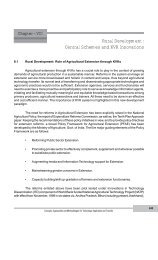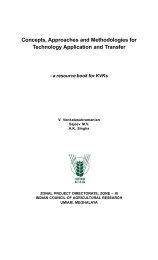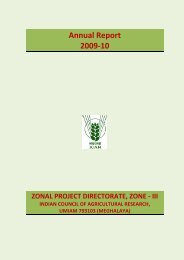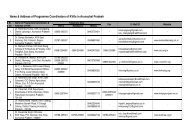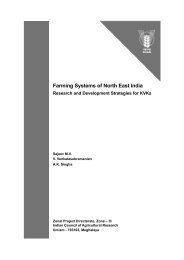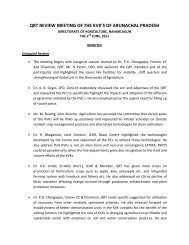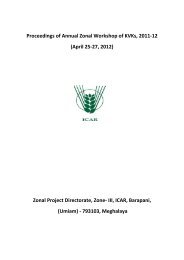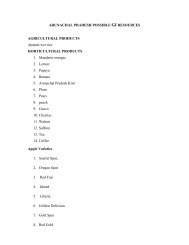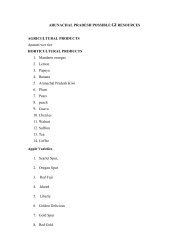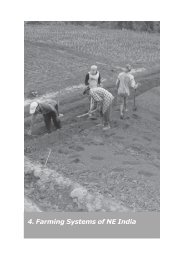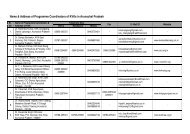Training Methodology for KVK Scientists - ICAR, Zonal Project ...
Training Methodology for KVK Scientists - ICAR, Zonal Project ...
Training Methodology for KVK Scientists - ICAR, Zonal Project ...
Create successful ePaper yourself
Turn your PDF publications into a flip-book with our unique Google optimized e-Paper software.
V<br />
V. Venkatasubramanian, Sajeev, M.V. & A.K. Singha.<br />
a. Experiencing<br />
This is the first stage of experiential learning cycle which deals with generation of data as a<br />
result of going through activities which is a part of structured experience. The participants are given<br />
instructions about the goal of the activity including “do’s and don’ts”. Some of the most important<br />
activities under structured experiences are:<br />
1. Role play 2. Writing<br />
3. Self disclosure 4. Competing or collaborating<br />
5. Creating objects 6. Making products<br />
The above activities can be done separately by individuals or jointly in small groups.<br />
b. Publishing<br />
In the second stage of experimental learning cycle, the data generated through the first<br />
stage i.e. experiencing is made available to the entire group. Ef<strong>for</strong>ts are made to collect data at<br />
cognitive, effective and behavioural levels. The following methods are used to record the reaction<br />
and observation of the participants.<br />
1. Recording of data in the blackboard.<br />
2. Posting the data using flip chart.<br />
3. Collection of data using rating instruments.<br />
4. Interviewing of the participants.<br />
c. Processing<br />
The stage of processing is the fulcrum or the most important step in the experiential learning<br />
cycle, which is concerned with analysis of experiences shared by the trainees. Careful planning has<br />
to be made to process the data collected and bring out the specific patterns underlying the dynamics<br />
of the activity. Unprocessed or ineffective processing will defeat the very purpose of structured<br />
experience exercise. Some of the techniques, which can be used in the processing, are: use of<br />
process observers, analysis of recorded data and studying the trends and patterns, analysis of role<br />
130<br />
Concepts, Approaches and Methodologies <strong>for</strong> Technology Application and Transfer



